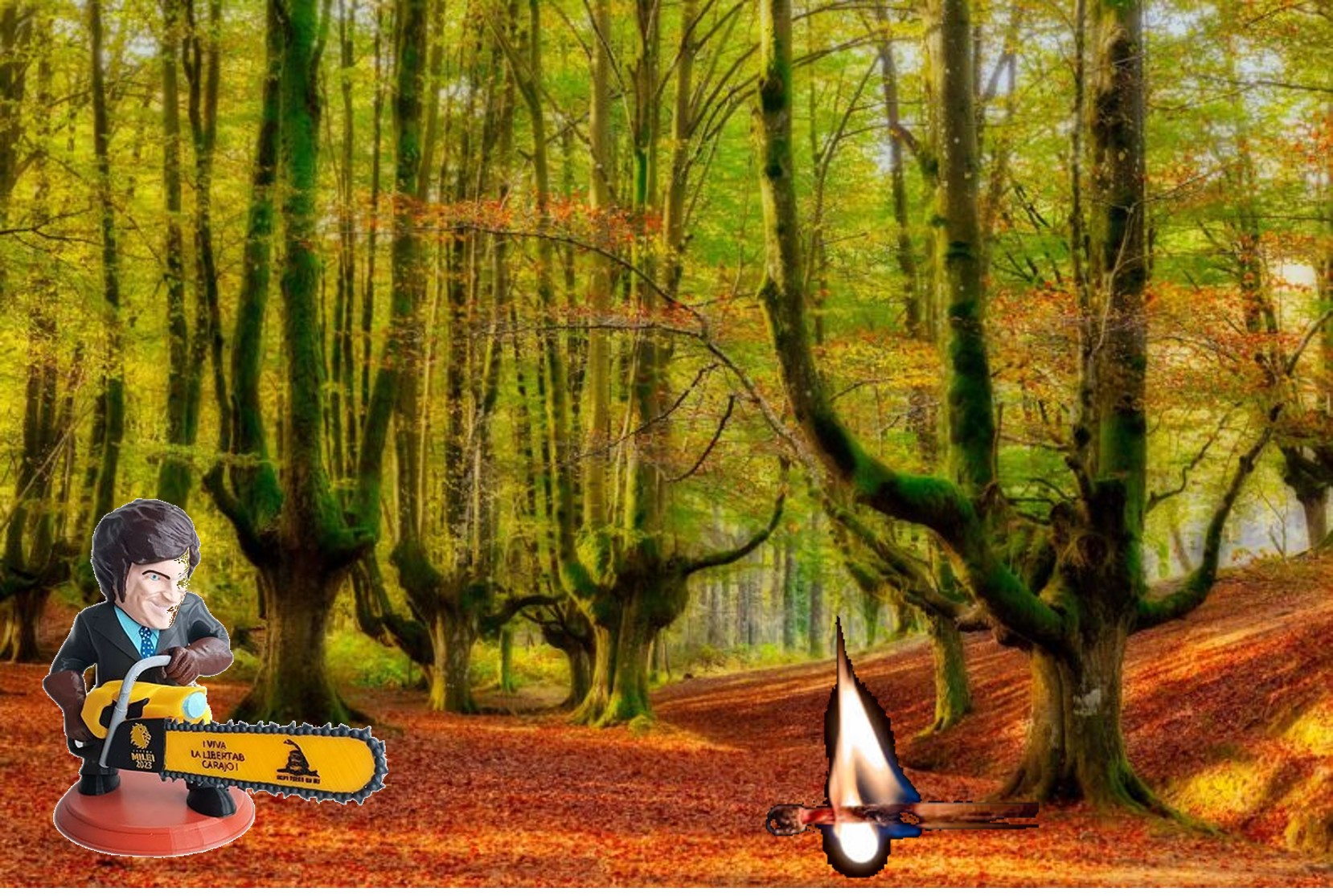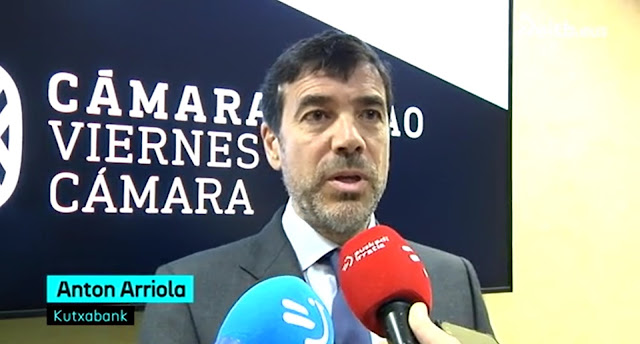37 questions to the new counselor living on the other side of the public education limit
Who orders us ...?
The Basque Government has just been set up and the Minister for Education will be Begoña Pedrosa. Being a vice-counselor in the previous legislature and being one of the founders of the new Education Law passed last December, we are allowed to ask some questions about the development of this law and its educational policy.
We're already lost...
That is what those of us who believe in the public believe, with the new Education Act, the public school has almost taken on board, because it has been passed in defiance of their demands. Madam President, do you think that an adequate educational system can be achieved by damaging half of that system? Through the Basque Public Education Service, the law equates the public school with the concerted one. Do you really think that by offering a public service you have to treat it as if it were a public private institution? When are we going to see the Department of Education giving priority treatment to public school?
The law gives public schools the guarantee of the right to education. So what's the role of the private network? Do you know that the law that equips public and private networks is never going to deal with segregation and is not going to subordinate private interests to the common interest? By the way, why are there no public centers in all the neighborhoods and villages of the CAV? And when should decent and attractive infrastructures (patios, roofs...) be provided in all public centres?
Don't be humiliated yet...
Madam Commissioner, we believe that the only public, Basque, democratically managed network with sufficient resources is the most effective instrument for achieving social cohesion, coexistence and integration.
Do not humiliate the employers of private education. The approaches taken by the law are those that throughout history have been requested by private education employers. Will you submit to them to the detriment of the public network? At a time when the birth rate is falling, are you prepared to shield the interests of the entire private network?
Will you continue to give more money to the coordination modules, lengthening the time and extending extraordinary aid? Will you, by law, support the universal concertation we have? Will you maintain this system of discriminatory consultation that allows the presence of the private network and is a source of segregation? Do you know that even if concerted centres are free (they will never be), school segregation will not end? Why donate money to centers that are not needed? Why help the indoctrinators? How about non-Euskaldunians? Do you intend to maintain a dual system that constantly creates school segregation? When is the more rational and logical use of public money for equality and cohesion?
Meet...
Although close to home there is a public school, several students go to a private center, at the choice of their parents, which is far from home. Daily bus trips are made from home to school (33 are made in Álava, 81 in Gipuzkoa and 358 bus routes in Bizkaia). 121 buses per day to Loiu. All of them from Children and Primary). How many kilometers do you make and how much CO2 does it emit? How many square meters of sidewalk do you take while waiting for the bus? How is this unnecessary movement combined with the Department of Education’s criterion of favouring close schooling? Is it sustainable?
Since 2016, public dining has had four pilot projects in which menus are prepared with organic, local and seasonal food. Although eight years have passed since the first experience was launched, this possibility has not yet been opened to the other centres despite requests. Are you ready to take steps in this field?
The news is born ...
And they'll keep coming to stay with us. Are ghettos created in the public network acceptable for the purpose of social cohesion? Are you going to take any steps to turn around public centres that have become ghettos of the most vulnerable? During the registration period, why accept the offer on the concerted when there is still room in public centres? When it comes to establishing educational policies, how long will the choice of families be the main criterion? When do the planning, zoning and institutional enrollment campaigns of the educational centers of Vitoria-Gasteiz have a strategy for the public school? The distribution of vulnerable students has been a failure announced: send to educational centers that make them even more vulnerable, while public schools are empty, do you think it fair?
Where are the "Sufficient Public Places of Early Childhood Education" for the hundreds of children up to 2 years old who have stayed on the street? Did they return to Europe with those millions of euros that they rejected?
We are seven provinces... in the Basque Country.
On the road to the normalization of the Basque Country, the Education Act does not set any progress. Does the maintenance of current language models contribute to such standardization? What guarantee will you provide for the Model D to remain an immersion system? As the Basque Country is the main tool of integration for our children to know the culture of the Basque Country and feel well within it, when is the only model of immersion in Basque? How do you understand the support of non-Euskaldunizan models with public money?
A good law, let's live clean...
In short, what strategic measures will the Basque Government take to put the "status" of the public school and the level of enrolment at the level of the European average, above 80%, as the central axis of the educational system? What steps will it take to extend the official discourse on strengthening public services to public education?
Madam Commissioner, we believe that the most effective instrument for achieving social cohesion, coexistence and integration is the support for a single public network, Euskaldun, managed democratically and with sufficient resources. We have a long way to go to that.
José Manuel Martínez Fernández and Maribel López de Luzuriaga Alonso
Members of Euskal Eskola Publikoa Harro Topagunea
Bidali zure iritzi artikuluak iritzia@argia.eus helbide elektronikora
ARGIAk ez du zertan bat etorri artikuluen edukiarekin. Idatzien gehienezko luzera 4.500 karakterekoa da (espazioak barne). Idazkera aldetik gutxieneko zuzentasun bat beharrezkoa da: batetik, ARGIAk ezin du hartu zuzenketa sakona egiteko lanik; bestetik, egitekotan edukia nahi gabe aldatzeko arriskua dago. ARGIAk azaleko zuzenketak edo moldaketak egingo dizkie artikuluei, behar izanez gero.
You may not know who Donald Berwick is, or why I mention him in the title of the article. The same is true, it is evident, for most of those who are participating in the current Health Pact. They don’t know what Berwick’s Triple Objective is, much less the Quadruple... [+]
The article La motosierra puede ser tentadora, written in recent days by the lawyer Larraitz Ugarte, has played an important role in a wide sector. It puts on the table some common situations within the public administration, including inefficiency, lack of responsibility and... [+]
Is it important to use a language correctly? To what extent is it so necessary to master grammar or to have a broad vocabulary? I’ve always heard the importance of language, but after thinking about it, I came to a conclusion. Thinking often involves this; reaching some... [+]
The other day I went to a place I hadn’t visited in a long time and I liked it so much. While I was there, I felt at ease and thought: this is my favorite place. Amulet, amulet, amulet; the word turns and turns on the way home. Curiosity led me to look for it in Elhuyar and it... [+]
Adolescents and young people, throughout their academic career, will receive guidance on everything and the profession for studies that will help them more than once. They should be offered guidance, as they are often full of doubts whenever they need to make important... [+]
We have had to endure another attack on our language by the Department of Education of the Government of Navarre; we have been forced to make an anti-Basque change in the PAI program. In recent years, by law, new Model D schools have had to introduce the PAI program and have had... [+]
Public education teachers have the need and the right to update and improve the work agreement that has not been renewed in fifteen years. For this, we should be immersed in a real negotiation, but the reality is deplorable. In a negotiation, the agreement of all parties must be... [+]
A few weeks ago, on Diputación Street, in the centre of Vitoria-Gasteiz, two men threw a homeless person off the small landing outside the place where he slept. In addition to being thrown away, a metal railing was immediately placed in front of the lonja. Although the place... [+]
From linguistics or glotophobia and, of course, hatred against Basque, we have often seen our Basque become the dandruff of all sticks. Last of all, the president of Kutxabank, Anton Arriola, has been shaking our language and giving us galantas.The President of Kutxabank,
... [+]
Do not look for this connection from Ezkio or Altsasu, let alone crossing the Ebro River through Castejón. The connection, or rather the connections, between the Basque Y and the AVE of Navarre is already a reality. It is these links in the plural that should concern us and... [+]
Don't make a fuss, don't confront, don't victimize... and obey. As oppressed subjects, in this case as Basques, we talk, how many times have we had to listen to them? Ironically, two years ago, at the Euskalale Independentiston Meeting, Esne Arzallus said: "We have arrived here,... [+]
Aurten "Israel Premier Tech" txirrindularitza talde israeldarra ez da Lizarraldeko Miguel Indurain Sari Nagusia lasterketara etorriko. Berri ona da hori Palestinaren askapenaren alde gaudenontzat eta munstro sionistarekin harreman oro etetea nahi dugunontzat, izan... [+]
Intsumituek denbora luzez egindako borroka gogorra eta mingarria izan zen, baina irabazi zuten, eta garaipen hura behin betikoa izango zela uste genuen, atzera bueltarik gabea. Baina badirudi, politikari batzuen ahotik aterata, eskalada militaristari gorazarre egin eta berriz... [+]










